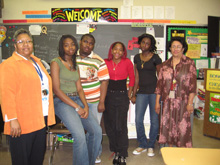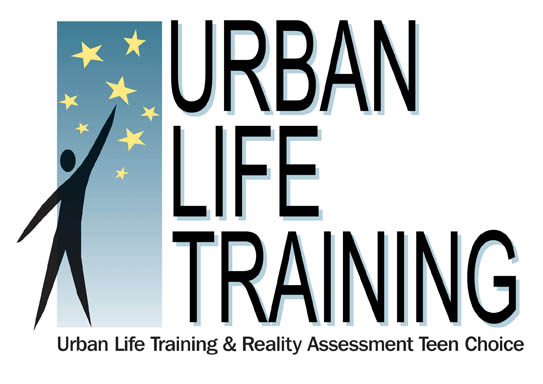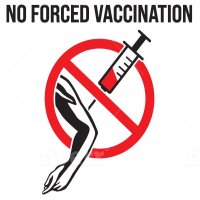- Details
- Category: Vaccines
What You Should Know About the HPV Vaccination and the Reporting Act of 2007
A Bill that Requires the HPV Vaccine for 10-13 Year Old Girls in DC
Do I have to give my child the HPV Vaccine for her to enter DC Public Schools?
NO! You can opt out for any reason. As a parent or guardian, you must sign this opt out form and present it to your child's school. Sexual abstinence is the preferred method of not contracting HPV or any other sexually transmitted disease, especially for 11 year old girls!
Why is it a bad idea to get my child vaccinated with the HPV vaccine?
There have been 13,758 reports of adverse reactions to this vaccine as of May 30, 2009. Of this number, 7% or almost 1000 were serious reactions. This includes 42 deaths as of June 16, 2009, and numerous cases of paralysis. Please watch these videos:
Editor's Note (there are three updated videos and more videos on these Youtube video pages on why HPV Vaccine is lethal and the impact is harmful and sometimes was deadly.)
HPV Vaccine Proves Lethal to 47 Girls Now Dead
HPV Gardasil Vaccine Victims and Deaths
The Dangers of the HPV vaccines Gardasil & Cervarix (HPV Vaccination Side Effects Cervical Cancer)
Here is the Report about the 42 Deaths
Judicial Watch on Gardasil Information Page
US News and World Report Blog and Comments(Be sure to read the comments)
What is the HPV vaccine?
The Human Pappiloma Virus (HPV) vaccine is a drug heavily advertised as Gardasil and is manufactured by Merck Pharmaceutical Co., which promotes the vaccine as a protection for girls against cervical cancer. Merck is also the maker of the infamous pain killer Vioxx, which was pulled off the market after it was shown to increase the risk of heart attacks and strokes. Merck faces 27,000 lawsuits resulting from the use of Vioxx. Like Vioxx, the HPV vaccine has not been thoroughly tested. Women and girls who receive vaccine still need to get regular Pap smears.
How many Washington, DC women die of cervical cancer each year?
On average, 8 women die from cervical cancer each year in Washington, DC.
Why is HPV vaccine on the list of vaccinations for incoming 6th grade girls in Washington, DC?
This bill was co-sponsored by David Catania and Mary Cheh. Seven DC city councilmembers voted for this vaccination, only one more than legally required to make it a law. This bill violates the medical principle that vaccinations are to be required for diseases that can be transmitted in social settings such as schools by being in close proximity to others who may be infected. However, there is no chance of getting infected with the HPV vaccine without sexual contact. At the time that the bill was passed in 2007, two council seats were vacant. Here is how the councilmembers voted:
|
Marion Barry
Vote: Yes |
Kwame R. Brown
Vote: NO |
|
David Catania
Vote: Yes |
Mary M. Cheh
Vote: Yes |
|
Jack Evans
Vote: Yes |
Jim Graham
Vote: PRESENT |
|
Vincent C. Gray
Vote: Yes |
Phil Mendelson
Vote: Yes |
|
Carol Schwartz
Vote: NO |
Harry Thomas
Vote: NO |
|
Muriel Bowser
Vote: VACANT |
Yvette Alexander
Vote: VACANT |
|
Tommy Wells
Vote: Yes |
Will the vaccine prevent cervical cancer?
No one knows for sure. Women do not generally develop cervical cancer until they are in their late 40's or early 50's While initial research shows that the vaccine can protect against four strains of HPV that cause about 70 percent of the cases of cervical cancer, women must still get regular pap smears. The best way to prevent genital HPV infection is to refrain from any genital contact with another individual, or to have sex only in a mutually monogamous relationship with an uninfected partner(i.e. marriage).
The HPV vaccination program is part of the city's promotion of "prevention" programs that emphasize risk reduction through using condoms or HPV shots, while not encouraging the large number of youth who are staying sexually abstinent all the way through high school (42% in 2007).
- Details
- Category: Vaccines
GOVERNMENT OF THE DISTRICT OF COLUMBIA
Department of Health
|
Information about Human Papillomavirus and Vaccination and Vaccine Refusal Form for Students at District of Columbia Public, Charter, Private and Parochial Schools Instructions for completing HPV Vaccine Refusal Certificate Section 1: Enter student information Section 2: Have parent/guardian or student (if > 18 years of age) initial, sign and date after reading Vaccine Information Statement (s) |
|||
|
Name of School |
|||
|
Section 1: Student Information |
|||
|
Student Name: |
Date of Birth: |
Grade: |
|
|
Street Address: |
City: |
Zip Code: |
Phone: |
|
Name and Address of Healthcare Provider: |
City: |
Zip Code: |
Phone: |
Recent legislation passed in 2007 by the District of Columbia City Council (DC Bill 17- 30) requires all female students, enrolling in grade 6 for the first time at a school in the District of Columbia, to submit certification the student has:
1. Received the Human Papillomavirus (HPV) vaccine; or
2. Not received the HPV vaccine because:
a. The parent or guardian has objected in good faith and in writing to the chief official of the school that the vaccination would violate his or her religious beliefs;
b. The student’s physician, his or her representative or the public health authorities has provided the school written certification that the vaccination is medically inadvisable; or
c. The parent or legal guardian, in his or her discretion, has elected to opt out of the HPV vaccination program by signing a declaration that the parent or legal guardian has been informed of the HPV vaccination requirement and has elected not to participate.
________________________________________________________________________
Human Papillomavirus (HPV) Vaccine Refusal
I have received and reviewed the information provided on the human papillomavirus and the benefits of the HPV vaccine in preventing cervical cancer and genital warts if it is given to preteen girls. After being informed of the risk of contracting HPV and the link between HPV and cervical cancer, I have decided to not to receive the HPV vaccine for the above named student. I know that I may re-address this issue at any time and complete the required vaccinations.
______________________________________________________ ____________________________
Signature of Parent/Guardian or Student if >18 years Date
_______________________________________________________
Print Name of Parent/Guardian or Student if >18 years
HUMAN PAPILLOMAVIRUS INFORMATION
Genital human papillomavirus (HPV) is the most common sexually transmitted virus in the United States. There are about 100 types of HPV. Most infections don’t cause any symptoms and go away on their own. HPV is important mainly because it can cause cervical cancer in women and several less common types of cancer in both men and women. It can also cause genital warts and warts of the upper respiratory tract. There is no treatment for HPV, but the conditions it causes can be treated.
About 20 million people in the U.S. are infected, and about 6.2 million more get infected each year. HPV is spread through sexual contact. More than 50% of sexually active men and women are infected with HPV at some time in their lives. Every year in the U.S., about 10,000 women get cervical cancer and 3,700 die from it with rates of cervical cancer in DC being higher than national averages.
HPV vaccine is an inactivated vaccine (not live) which protects against 4 major types of HPV. These include 2 types that cause about 70% of cervical cancer and 2 types that cause about 90% of genital warts. HPV vaccine can prevent most genital warts and most cases of cervical cancer.
Protection is expected to be long-lasting. But vaccinated women still need cervical cancer screening because the vaccine does not protect against all HPV types that cause cervical cancer.
HPV vaccine is routinely recommended for girls 11-12 years. Doctors may give it to girls as young as 9 years. It is important for girls to get HPV vaccine before their first sexual contact-because they have not been exposed to HPV. For these girls, the vaccine can prevent almost 100% of disease caused by the 4 types of HPV targeted by the vaccine. However, if a girl or woman is already infected with a type of HPV, the vaccine will not prevent disease from that type. It is still recommended that girls or women with HPV get vaccinated.
The vaccine is also recommended for girls and women 13-26 years of age who did not receive it when they were younger. It may be given with any other vaccines needed.
HPV vaccine is given as a 3-dose series:
? 1st Dose: Now
? 2nd Dose: 2 months after Dose 1
? 3rd Dose: 6 months after Dose 1
People who have had a life-threatening allergic reaction to yeast, are pregnant, moderate to severe illness should not receive the vaccine. Side effects are mostly mild, including itching, pain, redness at the injection site and a mild to moderate fever.
If additional information is needed, please contact your healthcare provider, the D.C. Department of Health Immunization Program at (202) 576-9342 or the Centers for Disease Control and Prevention (CDC) at 1-800-CDC-INFO (1-800-232-4636).
- Details
- Category: Vaccines
Is HPV Vaccine to Blame for a Teen's Paralysis?
A father desperately searches for answers as his daughter nears death.
By Deborah Kotz | Contributor July 2, 2008, at 4:41 p.m.
About a month after being vaccinated against the cervical cancer-causing HPV virus, 13-year-old Jenny Tetlock missed the lowest hurdle in gym class, the first hint of the degenerative muscle disease that, 15 months later, has left the previously healthy teenager nearly completely paralyzed. Did the vaccine, Gardasil, cause her condition? Her father, Philip Tetlock, a psychology professor at UC-Berkeley's Haas School of Business, has embarked on an odyssey to find out whether the vaccine or random coincidence is to blame.
As father and scientist, Tetlock has contacted top medical experts, posted pleas on discussion boards looking for other teens who've experienced neurological problems post-vaccination and has been desperately trying to get the government to open an investigation into his daughter's case. "The weakening process is gradual so it may take months for parents to notice what is going on," he writes me in an E-mail. He started a blog a few weeks ago that shows photos of his sweet-faced teen and reveals his anger and frustration in the form of a box counting the days that he has yet to get a response from the government's Clinical Immunization Safety Assessment Network. As of today, it's 28.
He's not the only one to raise an alarm. The conservative public watchdog group Judicial Watch has been periodically obtaining adverse event reports on Gardasil from the Food and Drug Administration. I received the group's latest warning this week: of 10 deaths linked to Gardasil since September 2007 and 140 reports so far this year of serious effects such as miscarriage and Guillain-Barré syndrome, a nervous system disease that causes weakness and tingling in the arms and legs. (But these reports filed by patients or doctors with the government's vaccine adverse event reporting system may or may not reflect true vaccine risks. Some problems may be missed or underreported, while others, including sudden deaths, may have nothing to do with the vaccine itself.)
Judicial Watch opposes efforts in many states to make the vaccine mandatory for all girls ages 11 and 12. Those efforts have raised concerns among religious groups that protecting against the sexually transmitted virus will encourage promiscuity among teen girls. The FDA insists there's no medical reason to be worried. "We're monitoring the safety of the HPV vaccine very carefully, and the only adverse event that causes some concern is syncope or fainting after the vaccine," says Robert Ball, director of the FDA's office of biostatistics and division of epidemiology at the center for biologics evaluation and research. Higher rates of Guillain-Barré have been associated with the swine flu vaccine and possibly with the meningitis vaccine Menactra, but it is no more common in those who get Gardasil than in those who don't, says Ball. The same goes for other side effects like spontaneous miscarriage.
What's more, the FDA has not documented any other cases of vaccine-related peripheral motor neuropathy—what Jenny has—either in the adverse event reports filed by doctors and patients or in the manufacturer's clinical trial data. Merck, the vaccine's manufacturer, has dismissed the possibility that Jenny's condition was caused by Gardasil. "We're aware of this case and based on the facts that we've received, the information doesn't suggest that this event was causally associated with vaccination," says Merck spokesperson Kelley Dougherty.
Tetlock, though, wonders if Jenny carries genes that predisposed her to problems with the Gardasil vaccine. At age 10, Jenny developed a rare skin disease called pityriasis lichenoides that's thought to be triggered by an overactive immune system, and her grandmother died of a nervous system disease. Could it be that certain genetic tendencies make some people more likely to develop severe reactions from vaccines? I ask Ball. "That's an important question," he responds. "We just don't know." It's certainly going to be a topic of future research, he adds. The Centers for Disease Control and Prevention is starting to look at whether those who developed Guillain-Barré after being vaccinated share a common set of genes. So Tetlock could find out someday if his hunches are correct.
At this moment, he and his wife, Barbara Mellers, also a professor at Berkeley, are focused on being with their daughter as she struggles to breathe on her own. "Jenny endures terrible suffering each day," Tetlock tells me via E-mail. "She must watch her capacity to control her own body gradually ebb away—and each day her hopes of ever having a normal human life recede ever further into memory. The disease is cruel beyond belief."
As a parent, I've wrestled with whether or when to get my 12-year-old daughter vaccinated against HPV. As much as vaccines are vital in protecting against life-threatening infectious diseases, they do, indeed, have the potential to cause harm—however rare that may be. Evidence is mounting that the mercury-based vaccine preservative thimerosal could trigger autism in certain susceptible kids, as my colleague Bernadine Healy previously reported. We don't know yet whether Jenny's illness is linked to Gardasil, though it's certainly plausible given the timing of symptoms several weeks after vaccination, which is when vaccine-related neurological problems typically occur. I'm not sure whether Jenny's case has changed my opinion about the value of Gardasil. But it certainly has given me pause.
- Details
- Category: Vaccines



Local
Abstinence Proponents Want Say in HPV Vote
|
(Ultra Teen Choice)
Richard Urban, co-founder of Ultra Teen Choice, gestures in a training class with teens. Urban believes the City is sending the wrong message by offering to give vaccines to teens to prevent the spread of the HPV virus. Jonetta Rose Barras, The Examiner Co-introduced with Ward 3’s Mary Cheh, the HPV bill requires Mayor Adrian Fenty to establish a mandatory three-step immunization program of Merck’s Gardasil for any girl entering sixth grade for the first time. He also must provide a process for parents to opt out and must ensure the annual collection and analyses of data by the Department of Health. Good luck with the latter. The health department can’t accurately count the number of people infected with HIV, doesn’t know specifically how the virus is being transmitted in the District, hasn’t conducted required inspections of hospitals and hasn’t developed a citywide health care strategy. That abysmal record, concerns about Gardasil and the country’s sordid history of medical experiments using poor, undereducated people, including black men in Tuskegee, Ala., drive public opposition to the measure. Vanessa Dixon, spokeswoman for Parents and Citizens Against Medical Experimentation, says the council is rushing the process and hasn’t provided for sufficient input from parents and others. She wants Catania to schedule additional hearings in the evenings or on weekends before his committee votes. Richard Urban, co-founder with his wife, Stacey, of Ultra Teen Choice, an abstinence training and support program for youth, believes the wrong message is being sent. “Focusing on giving vaccines for sexually transmitted diseases to 11-year-old girls is the wrong focus. Focusing on education and peer plus adult support for youth to [practice abstinence] is the right focus,” Urban says. Since 1997, he has used college students as mentors and youth peers to provide HIV/AIDS education and lead abstinence clubs in public schools. The CDC’s 2005 National Youth Risk Behavior Survey of 14,000 youth found a significant drop in those involved in sexual activity. Urban and others partially credit abstinence programs. This Saturday, an array of nonprofit groups, including the National Organization of Concerned Black Men, East Capitol Center for Change and the D.C. Healthy Marriage and Relationships Coalition will join Urban at the Thurgood Marshall Center on 12th Street Northwest to kick off Abstinence Awareness Week as declared by the mayor. Ward 5 Council Member Harry Thomas Jr. is on the program; I am moderating a panel. Dixon and Urban may be unable to prevent passage of the HPV legislation; the CDC’s endorsement empowers the legislature. But nothing prohibits Catania and vaccination proponents from including abstinence education as a component of the immunization regimen. It is hard to deny this salient fact: The most effective safeguard — better than 1 million condoms — against a sexually transmitted disease is not engaging in sex. Jonetta Rose Barras is the political analyst for WAMU radio’s D.C. “Politics Hour with Kojo and Jonetta.” |



